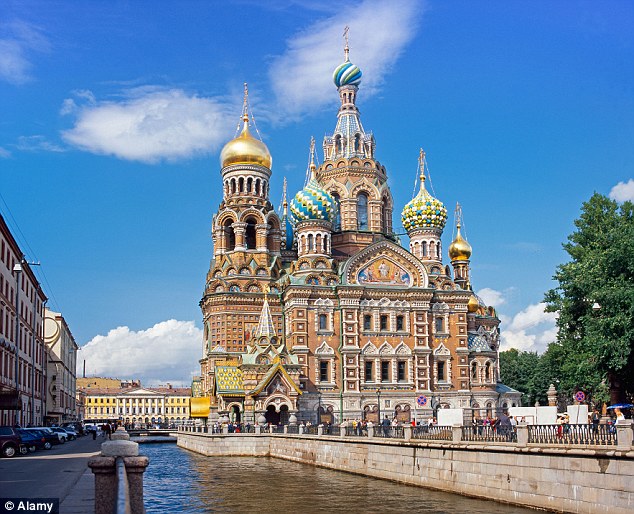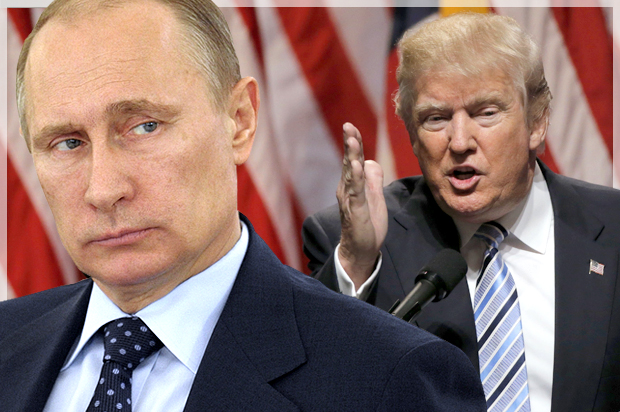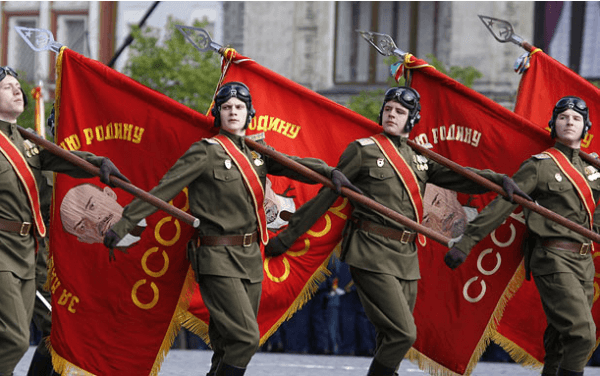Russia-phobes are in full flower as America descends into the Trump swamp. Fear and hostility between the two peoples are greater than at any point since the Cold War. But believe it or not, Russians used to love Americans, while hating our government. Sound familiar?
 Russians rolled out the red carpet (pardon pun) for me in January 1990 when I was invited to Moscow to start a joint-venture company with a leading perestroika businessman, thinking Americans were coming to help them build a market and democracy. Now they hate us, and talk on the streets of Moscow and St. Petersburg is of war.
Russians rolled out the red carpet (pardon pun) for me in January 1990 when I was invited to Moscow to start a joint-venture company with a leading perestroika businessman, thinking Americans were coming to help them build a market and democracy. Now they hate us, and talk on the streets of Moscow and St. Petersburg is of war.
Despite or because I’m a constitutionally introspective American in the vein of Emerson, Thoreau, Whitman, and the Transcendentalists, as well as that most radical of political radicals Thomas Paine, I felt at home in the city Peter the Great built.
On a bitterly cold Russian morning, the cultural elites of St. Petersburg took me to a few of the czarist palaces, and then to St. Isaac’s, a cathedral, which rivals any of the great cathedrals of Europe. I didn’t believe in reincarnation before I visited that splendid city, but couldn’t shake a deep feeling that I’d lived there before.
As my interpreter and I walked back to the hotel through the snowy streets at midnight after watching a ballet performance, we came upon the eternal flame of the innumerable fallen (yes, they have their fallen too) to the Nazis during the great siege.
The next evening, as we toasted with vodka (though I rarely drink hard liquor), I stood up when it was the American’s turn, and spoke from my heart about the city, the Cold War, what could be, and what I still feel could have been.
The vodka provided lubricant to the dénouement of my toast: Leningrad will be St. Petersburg again before the end of the year! They looked at me in astonishment. But the great city did reclaim its name in November of that year, though by then the opportunity for Russians and Americans to work together was lost.
A mystic by nature and practice (if there is any practice for a mystic), I had long been fascinated by how a mystic, Rasputin, could go so wrong. So as dusk fell on one of my days in Leningrad, after having visited the tiny flat and museum of Dostoevsky’s residence, a newfound Russian friend took me to the closed museum palace where Rasputin had been murdered.
We entered the site of Rasputin’s protracted assassination in the last light of that last January of Leningrad. As the cultural director walked me through the killing that took poison, gunshots and drowning to finally effect, I felt transported back to the event itself, and to another juncture of history.
In some measure, I became Russian in Russia that winter. So I understand, without justification, where the autocrat Putin and his people are coming from, to use an old California expression.
Putin’s regime is probably guilty of cyber-spying and meddling in the American electoral process. But there is a context—the humiliation and betrayal that Russians have felt for 25 years in the shadow of the ‘sole remaining superpower.’ And to diminish the danger of war without denying the danger of Putin, Americans need to grasp it.
As the Los Angeles Times reported on May 30th, the Russians rightly “claim the United States has failed to uphold a promise that NATO would not expand into Eastern Europe, a deal made during the 1990 negotiations between the West and the Soviet Union over German unification.”
Consider their perspective: “After the Berlin Wall fell, Europe’s regional order hinged on the question of whether a reunified Germany would be aligned with the United States (and NATO), the Soviet Union (and the Warsaw Pact) or neither.”
“According to transcripts of meetings in Moscow on Feb. 9, 1990, then-Secretary of State James Baker suggested that in exchange for cooperation on Germany, U.S. could make “iron-clad guarantees” that NATO would not expand “one inch eastward.”
The Times continues, “It is therefore not surprising that Russia was incensed when Poland, Hungary, the Czech Republic, the Baltic states and others were ushered into NATO membership starting in the mid-1990s.”
Read the piece if you want to understand what is going on now—with Russia, America and Trump.
Truth is not just the first casualty of war; it’s the last line of defense against dictatorship. The Democrats’ denial of America’s decline, and reiteration of American exceptionalism plays into the hands of the Republican autocrat’s declaration, “I alone can fix it.” It also allows Putin to Trump us.
An international order is not a global order. And the international order, devised after World War II, is not evolving into a global order.
The word ‘sovereignty’ means supreme principle. Therefore continuing with the sovereignty of ‘my country’ over the sovereignty of humanity as a whole lies at the root of the world’s growing chaos.
In a completely interconnected world, there is no such thing as “true patriotism.” Patriotism—the love of country over the love of humanity—is tribalism.
And we must psychologically and emotionally move beyond tribalism to survive as peoples, and a potentially sapient species.
Martin LeFevre
LA Times article: http://touch.latimes.com/#section/-1/article/p2p-87355590/

